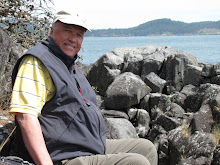Monday, January 29, 2007
Thursday, January 25, 2007
Men may get more prostate cancer protection from tomatoes and broccoli if they eat the two together rather than separately. A 22-week study in rats implanted with prostate cancer cells suggests that a tomato/broccoli diet (in this case, food containing 10 percent broccoli powder and 10 percent tomato powder) reduced prostate tumors more effectively than other diets studied, including those containing either tomato or broccoli powder alone, a supplement of lycopene (the pigment in tomatoes believed to protect the prostate from cancer) or finasteride, a drug used to treat enlarged prostates. The only approach that worked almost as well as the broccoli/tomato combo was castration, the University of Illinois researchers reported. They suggested that the dietary approach might help older men with slow-growing prostate cancer who have chosen watchful waiting over chemotherapy and radiation. To get the effects seen in the study, they advise that men eat 1.4 cups of raw broccoli daily, plus 2.5 cups of fresh tomato or one cup of tomato sauce or 1/2 cup of tomato paste. The study was published in the January 15, 2007 issue of Cancer Research.
...from Dr. Weil website
Monday, January 22, 2007
They have a deep belief in their body's ability to heal in spite of being told by experts that their illness is terminal.
They regain a sense of control in their lives - a feeling of personal autonomy.
They assume responsibility for creating a recovery program that is right for them - they do not simply abdicate responsibility for their treatment to experts.
They undergo a 'spiritual transformation' - an awakening of the true values and aspirations that have lain dormant deep inside themselves.
Truly alive - perhaps for the very first time - this spiritual re-awakening brings a new authenticity to their life as they reconnect with their deepest feelings, values and aspirations.
Once healed, they often look back upon their illness as a 'gift' that transformed their life.
They bring a new authenticity to their relationships with others.
They fully reassess their lives - often making very significant changes to their diet, life-style, career, goals, and relationships with others.
They often make radically healthful changes in their diet - away from refined, processed foods towards healthful, wholesome foods. They eat more fruits and vegetables and less animal fat, and many become vegetarian.
Many begin taking vitamins and other supplements for the first time.
They take more time to simply relax and enjoy their life. For many, daily meditation or prayer becomes an important part of their life.
They learn to 'listen' to their bodies and to surrender to, rather than resist, the day-to-day fluctuations of energy, symptoms and emotions that accompany the healing process.
They reconnect with their sense of community and reclaim the joy that comes from being of service to others. In healing themselves, they facilitate healing in others.
......from The Centre for Integrated Healing - Vancouver, Canada.
Wednesday, January 10, 2007
It’s not necessarily the number of calories you eat that influences your risk of cancer, according to results of a new study of mice from the University of Alabama at Birmingham. Instead, researchers there found that body composition – whether you’re lean or, ahem, not – may be what actually makes the difference. The study, published in the January 1, 2007, issue of Cancer Research, reported that in mice predisposed to prostate cancer, the disease progressed more slowly among those than were lean than it did among obese animals. To perform the investigation, the researchers put the groups of study mice into two controlled environments, one with a temperature of 27 degrees centigrade, the other somewhat cooler at 22 degrees centigrade. They then fed the two groups equal amounts of food. The mice in the cooler chamber burned more calories to keep warm, lost weight and became leaner than the mice in the warmer chamber. The researchers concluded that it isn’t the number of calories consumed, but how lean or obese you are that influences cancer risk.
.
.......from Dr. Weil website

